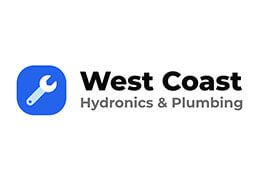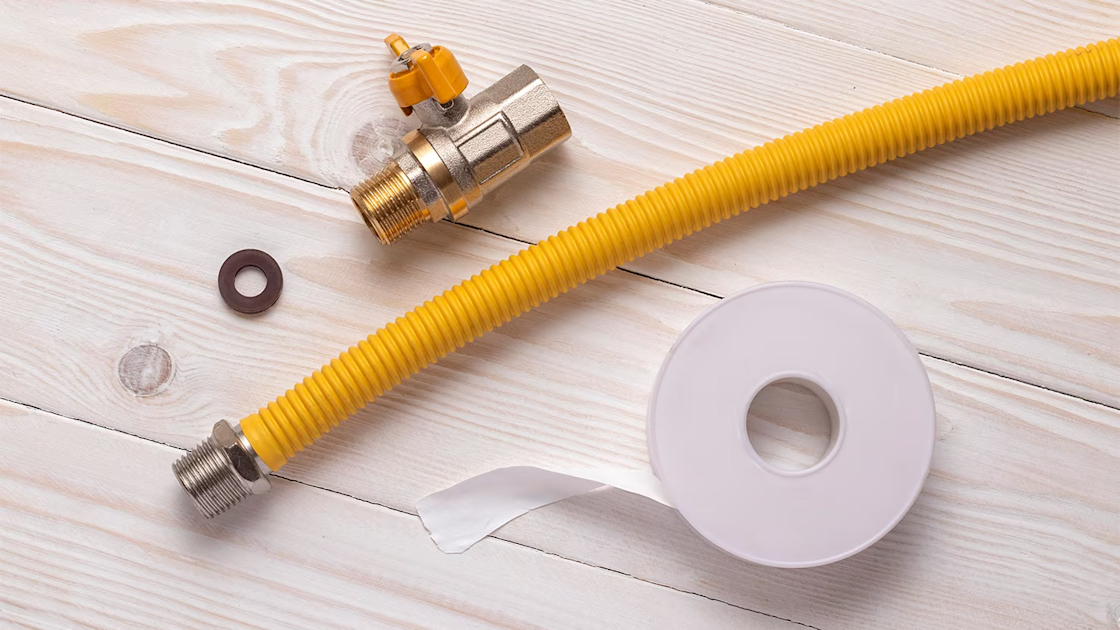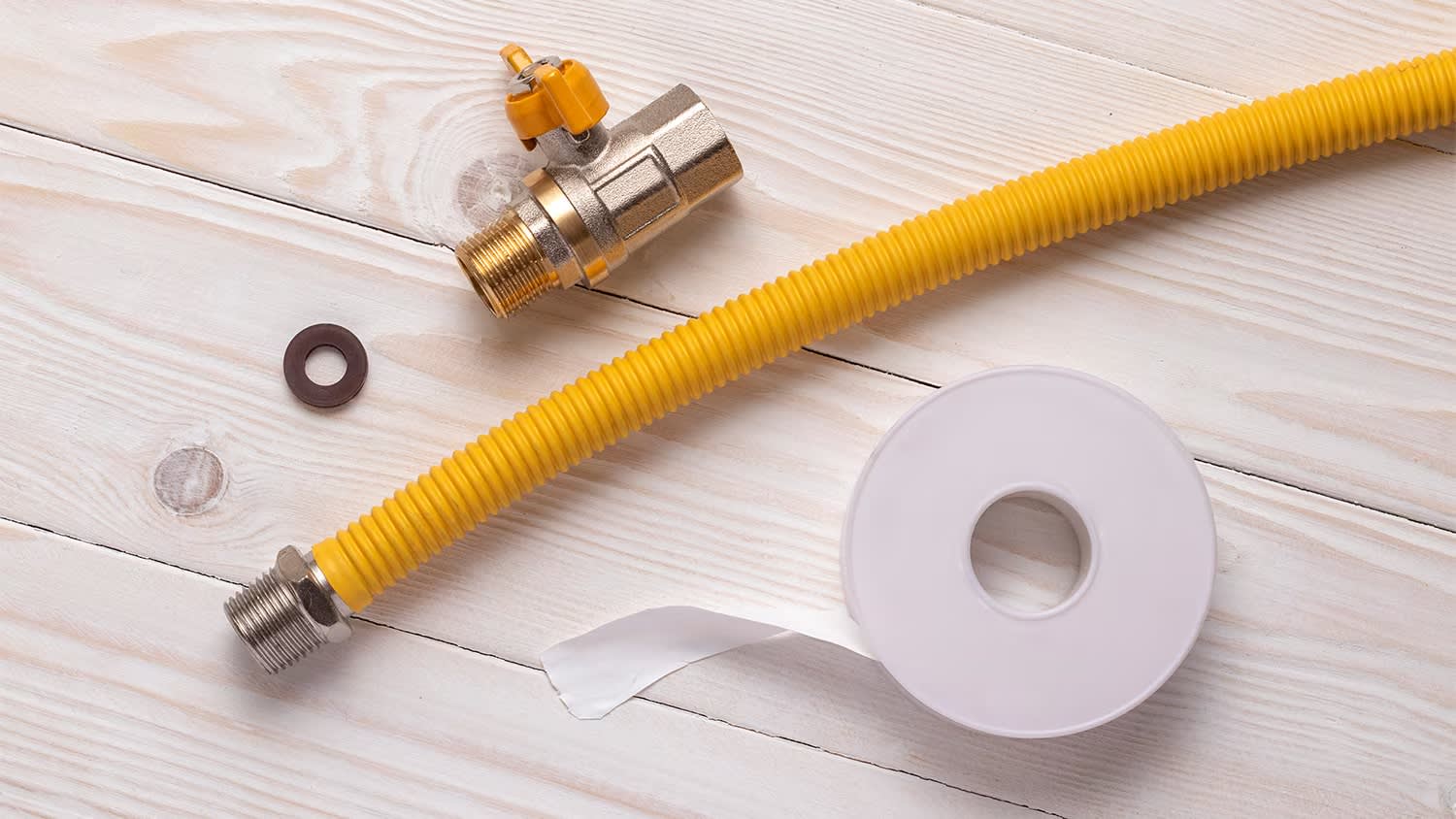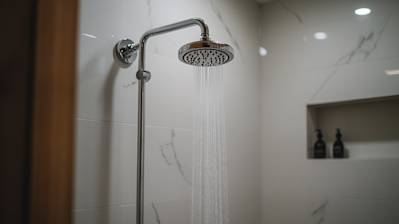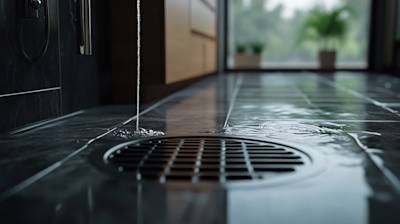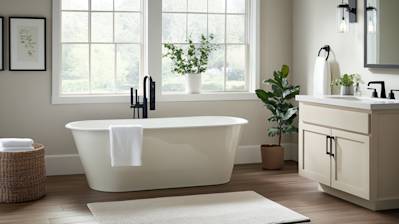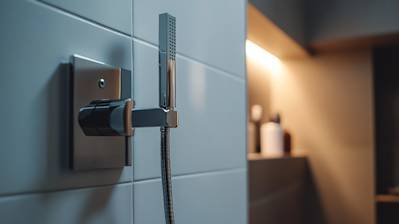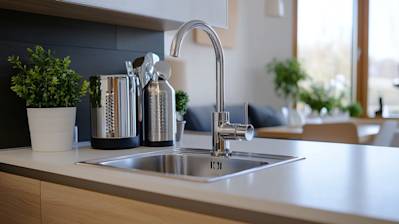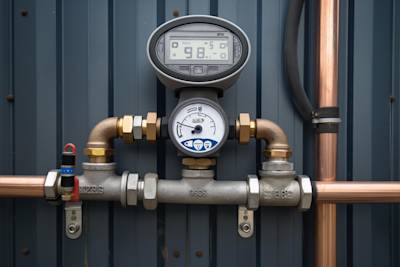Understanding a critical component of your gas supply system, the "flexible gas line" is essential. It is often the unsung hero in our houses and commercial establishments, providing a safe and flexible connection between the main gas supply and our appliances. These lines are designed to absorb vibrations, expansions, and contractions that might otherwise damage traditional rigid gas lines. This blog provides an in-depth understanding of a flexible gas line, its functions, varieties, installation, and maintenance.
What is a Flexible Gas Line?
A flexible gas line is a pipe that enables the transportation of gases like propane or natural gas from a supply source to different appliances in a home or business. Being flexible, these pipes can easily adjust to turns and twists, unlike their traditional rigid counterparts that need several fittings for the same job. Flexible gas lines are commonly used for ovens, grills, fireplaces, water heaters, furnaces, and space heaters.
Types of Flexible Gas Lines
There are different types of flexible gas lines, namely Stainless Steel, Corrugated Stainless Steel Tubing (CSST) and Plastic-Coated Brass.
- Stainless Steel:These are durable and corrosion-resistant, ideal for outdoor as well as indoor use.
- Corrugated Stainless Steel Tubing (CSST):CSST is a popular choice due to its flexibility. It's also less likely to leak because it has fewer joints.
- Plastic-Coated Brass:This type of flexible gas line is cost-effective and commonly used inside homes.
Flexible Gas Line Installation
Installation of a flexible gas line can be complicated and is best performed by licensed and insured professionals. Installation involves cutting the pipe to the required length, fitting it to the appliance and gas supply, and then testing for leaks. Every connection point along the flexible gas line must be correctly tightened to prevent leaks. Testing for leaks is done using either a special gas leak detection solution or soap water.
Fittings and Adapters
In order to connect the flexible gas line to the gas supply and the appliance, various fittings and adapters are needed. These include couplings, tees, elbows, unions, brass adapters, and specialty adapters. All fittings should be chosen according to the pipe size and material type to ensure a safe and secure connection.
Maintenance and Safety Measures
Flexible gas lines are designed to be durable and secure, but regular inspection and maintenance are paramount for safety. It's essential to keep an eye out for visible wear and tear, particularly in areas where the line meets an appliance or the main gas supply. Moreover, professional inspection and maintenance should be done per local regulation schedules. In case of any signs of leaks such as a hissing sound, smell of gas, or dead plants around the gas line area, it is crucial to shut off the gas supply and call for professional help immediately.
Regulations and Guidelines
The installation and maintenance of flexible gas lines are regulated by guidelines set down by the National Fire Protection Association (NFPA) and local authorities. These guidelines cover areas such as line sizing, installation procedures, leak testing, and more. It is advised to strictly adhere to these guidelines to ensure safety.
Flexible gas lines serve an integral role in our homes and commercial establishments. Providing a safer and more convenient solution to delivering gas, their importance cannot be underestimated. While they are built for durability, regular inspections and proper installation by licensed professionals ensure that they function optimally and safely. As safety should never be compromised, awareness about flexible gas lines, their installation, and maintenance should be an imperative pursuit.
FAQ About Flexible Gas Line
What is meant by a flexible gas line?
A flexible gas line, also known as corrugated stainless steel tubing (CSST), is a type of tubing used to supply natural gas or propane to appliances in residential and commercial settings. Unlike traditional rigid piping, flexible gas lines offer greater versatility and ease of installation due to their ability to bend and flex.
Why might one use a flexible gas line instead of a rigid gas line?
Flexible gas lines are often favored for their ease of installation, particularly in situations where a gas pipe needs to navigate around obstacles or corners. Additionally, flexible gas lines are more resistant to leakages due to their flexible nature, which allows them to withstand vibrations and minor shifts without cracking or breaking. Their lighter weight and fewer connection points further add to their practical appeal.
Are flexible gas lines safe to use?
When installed and used correctly, flexible gas lines are safe. They are designed to withstand high pressure and are resistant to corrosion. However, improper installation can lead to gas leaks, which may result in fires or explosions. To maintain safety, the integrity of the flexible gas line must be periodically checked, and any damaged sections promptly replaced.
How long do flexible gas lines last?
Flexible gas lines have a robust composition that allows them to last for many years. Their average lifespan is between 30 to 50 years, assuming they are properly installed and maintained. Their exact lifespan, however, may depend on such factors as environmental conditions, usage, and manufacturer quality.
Can flexible gas lines be used outdoors?
Yes, flexible gas lines can be used outdoors. However, they must be properly protected and insulated against environmental elements such as UV rays, moisture, and physical impacts. Some flexible gas lines come with a protective jacket specifically for outdoor use.
What types of appliances can be connected to flexible gas lines?
Flexible gas lines can be connected to a wide variety of gas-consuming appliances, including water heaters, fireplaces, furnaces, stoves, and BBQ grills. The specifics of what appliances can and cannot be connected to flexible gas lines would depend largely on local codes and the appliance manufacturers' instructions.
Can I install a flexible gas line myself?
While it is technically possible to install a flexible gas line yourself, it is generally not advised unless you have specific training or experience in this area. Installation involves managing potentially hazardous materials, and any misstep could lead to gas leaks resulting in serious harm or even loss of life. As such, it's recommended to have a professional handle the installation of a flexible gas line.
Pros and Cons of Flexible Gas Line
Pros of Flexible Gas Line
Easy Installation
- An advantage of flexible gas lines is their easy installation process. Traditional rigid gas lines require complex connections and fittings. In contrast, flexible gas lines are simpler to install as they only necessitate a straight run with fewer fittings. This easy installation can save substantial time and labor costs.
Durability
- Another advantage of flexible gas lines is their durability. These lines are typically made from corrugated stainless steel, which is a robust and long-lasting material. Hence, they can tolerate different environmental conditions and demonstrate excellent resistance to corrosion.
Versatility
- Flexible gas lines offer greater versatility as they can be used for a variety of gas appliances, including heaters, fireplaces, grills, stoves, and water heaters. Their flexibility allows them to be bent and routed around obstacles and through tight spaces, which makes them suitable for various applications.
Safety
- Flexible gas lines can be safer than rigid gas pipes because they are less susceptible to damage from seismic activity and house settling. This is particularly beneficial in areas prone to earthquakes. Also, due to their corrugated construction, these lines can effectively release pressure buildup, minimizing the potential for gas leaks.
Cons of Flexible Gas Line
Cost
- The cost is one of the main drawbacks of flexible gas lines. Although these lines can save labor costs, their initial cost is typically higher than that of traditional rigid gas pipes. This increased upfront cost can deter some users from opting for flexible gas lines.
Specialized Components
- Although installing flexible gas lines can be simpler, it often requires specialized components and tools. These may include specific connectors or adaptors, which may not be commonly available and may necessitate extra expenditures.
Sensitivity to Certain Environmental Conditions
- Despite their robustness, flexible gas lines can be sensitive to certain environmental conditions. Exposure to ultraviolet (UV) rays can degrade the material, resulting in potential leaks. This necessitates that these lines be properly shielded from sunlight.
Potential for Incorrect Installation
- The simplicity of flexible gas line installation can sometimes lead to incorrect installations. Improper fittings or not understanding specific requirements can potentially cause gas leaks. Therefore, it is often wise to hire a professional gas line installer to ensure the installation is done correctly.
Regulations and Compliance
- Another disadvantage of flexible gas lines is the regulations and compliance. In some areas, local building codes do not permit the use of flexible gas lines, mandating the use of rigid gas pipes instead. Hence, it is essential to check local regulations before deciding to install flexible gas lines.
Summary
The ability to be easily molded makes a flexible gas line an essential part of our homes. Whether it's for your kitchen or outdoor grill, it provides a secure and efficient gas supply. Being less prone to damage and leaks, a flexible gas line offers an affordable and safer option for most households.
The installation process of a flexible gas line is straightforward and faster compared to the traditional rigid gas pipes. With this, unnecessary delays in setting up your appliances can be avoided. So whether you are a homeowner, a contractor, or someone planning a renovation, choosing a flexible gas line could be a practical move.
Finally, the long-term benefits of a flexible gas line should not be underestimated. From reduced installation costs to less risk of leaks, these features make it an economical and secure choice for gas supply lines. As always, ensuring that installation and maintenance are done by professionals can ensure the proper functioning of this essential home feature.
About West Coast Hydronics & Plumbing
Welcome to West Coast Hydronics & Plumbing, the top-rated plumbing service company based right here in Sacramento, CA. We are proud to have served the community and surrounding areas with top-notch plumbing solutions for several years. Our team of experts is always ready to tackle any plumbing issues with unparalleled dedication. Whether it's a residential or commercial space, we believe in delivering quality service that meets your needs and exceeds your expectations. To learn more about us, feel free to visit our main site here.
